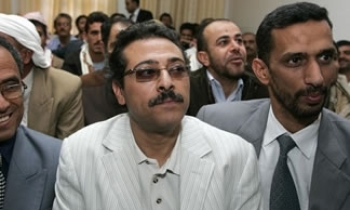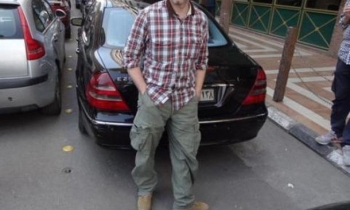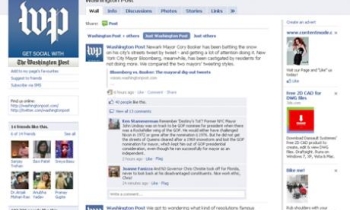The Russian government has asked the Russian Union of Journalists (RUJ), which represents more than 100,000 journalists, to vacate its offices in central Moscow. RUJ Secretary-General Igor Yakovenko said the union received a letter from the Federal Property Management Agency on May 16 saying it would have to hand over its premises to the state-owned Russia Today TV station within a month.
RUJ is in the midst of preparations for the 26th World Congress of Journalists, an international gathering of media workers starting on May 28 in Russia’s capital. The congress, organised by the International Federation of Journalists (IFJ), will draw representatives from more than 160 organisations worldwide. Press freedom in Russia is to be the Congress’ main focus this year. This month, CPJ named Russia one of the world’s worst backsliders on press freedom.

RUJ, as of now, has refused to vacate the premises. It said in a statement, "The explanation that the premises were indispensible to enlarge the activities of the Russia Today channel, created to improve our country's image, is absurd. A world congress of journalists is due to be held in Moscow on May 28. It is obvious that this decision intends to prevent the forum from being held."
RUJ received a notice dated April 18 from the Federal Property Management Agency, or Rosimushchestvo, ordering the union to vacate its headquarters on Zubovsky Boulevard within a month. Yakovenko said the notice was not delivered until May 16 — leaving RUJ just two days to leave offices that it and its predecessor has occupied since 1980.
The federal agency did not explain the sudden decision to evict the group, Yakovenko said. Russian press reports said the RUJ premises would be given to Russia Today, a state-run English-language satellite television channel created to boost Russia’s international image. Kommersant quoted Russia Today’s press office as saying the station “could really use the space” to create a Spanish-language spinoff. Russia Today began broadcasting in 2005.
"These steps are taken in order to practically abolish the journalists' union, due to the union's uncompromising defense of the professional community, constitutional rights and freedoms of Russian citizens," RUJ said in the statement signed by V Bogdanov, chairman, I Yakovenko, secretary-secretary, and the union's secretaries A Bogomolov, P Gutionov and M Fedotov..
“This is a crude act of harassment by the authorities with the apparent aim of obstructing the union’s activities,” Reporters sans Frontières (RSF) said. “The failure to give a reason for the eviction, the ridiculously short time the union is being allowed to vacate the premises, and their transfer to a state-controlled TV station created to promote Russia’s image abroad all indicate that this is crass attempt to disrupt the union’s activities.”
“This action and its timing are clearly political and send a distressing message. As international journalists gather in Moscow, the government is ousting an independent press group in favour of an outlet dedicated to propaganda,” Committee to Protect Journalists (CPJ) Executive Director Joel Simon said. “CPJ calls on the government to reconsider its actions, to stop harassing our colleagues, and to allow them to do their work freely.”

Johann P Fritz, Director of the International Press Institute (IPI) said, "The decision and its timing appear to be aimed at sabotaging the upcoming journalists’ conference, and silencing the critical voice of the union and its members. IPI strongly condemns this action and calls on the authorities to reconsider its decision and to allow RUJ to operate without further obstruction."
RUJ is a professional association that trains journalists, monitors press issues, and defends the interests of journalists. Its member groups include the country’s leading press freedom advocacy organisations, the Center for Journalists in Extreme Situations (CJES) and the Glasnost Defense Fund (GDF). Both organisations, which have been critical of the Kremlin’s press freedom record, are located in the Zubovsky Boulevard building and must leave as well.
On March 20, 1998, then-President Boris Yeltsin issued a decree that gave RUJ use of the building on Zubovsky Boulevard. Yakovenko told Kommersant that he believes the lease to be “infinite and unlimited.”
The eviction notice followed several other actions that restricted alternative views from circulation. On May 11, the police confiscated three journalists' computers at the offices of the Samara regional edition in Novaya Gazeta, an opposition newspaper, in a search for illegal software. Samara is the location of a summit that began Friday between Russian President Vladimir Putin and the European Union. All reporters at the Russian News Service have submitted letters of resignation in protest of policies issued by the service's new pro-Kremlin management describing its editorial policies as "censorship."









